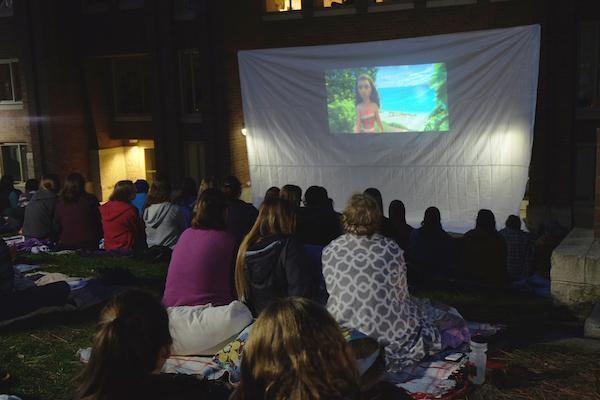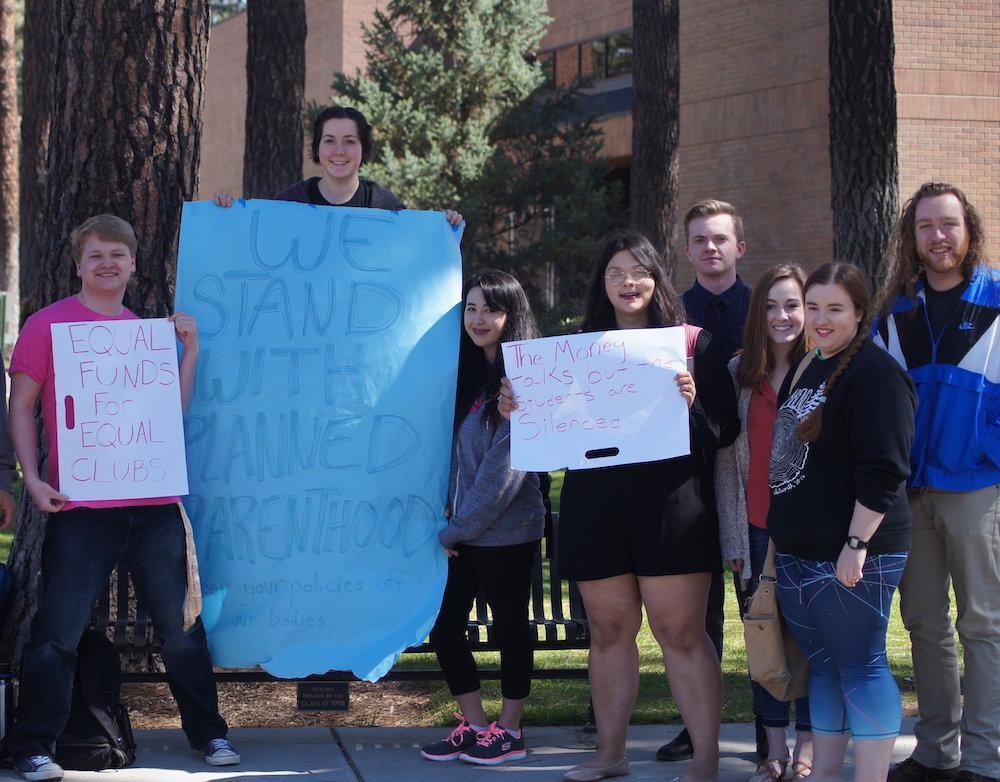Whitworth gives out conduct violations for many reasons, but the majority are given to students who allegedly break one of the Big Three campus rules, which are no possession of drugs or alcohol on campus, no cohabitation and no disruption of community life.
One senior student reported that she received a Big Three violation for disturbing the community. Wanting to remain anonymous for this Whitworthian article, this student talked about the process of receiving a violation.
“We were frolfing, and the tradition when you frolf at night and get to Eric Johnston is to stand up on the salt pillar and then pull down your pants and take that first throw,” the senior said. “I am high-key eternally salty about getting fined because I had a coat on that reached down to my knees and I had jeans on, so the only part that you could see were my knees.”
The senior was stopped by a security guard who was locking up Eric Johnston at the time. The security guard came over and asked her a few questions as she jumped off of the pillar, and asked for her ID, the senior said.
The senior did not feel that a Big Three violation fit her actions of pulling pants down on the salt pillar, but that a slap on the wrist would have been a better fit.
“I did not feel that I was disturbing the community, particularly when the community at large all do that,” the senior said.
Any student that is reported to have a conduct violation is required to go to a hearing with Student Life to talk about the details of the alleged violation and to receive consequences. Timothy Caldwell, director of Residence Life said students involved in a hearing and those leading the hearing are usually able to participate in healthy discussion.
“I would like to say that a lot of [conduct meetings] end positively,” Caldwell said. “It depends on the view of the student. Most students understand — it’s usually pretty cut and dry, right?— did you break it or did you not.”
I did not feel that I was disturbing the community, particularly when the community at large all do that.”
— Anonymous Senior
Students are brought into conduct violation meetings when a report has been filed against the student or there is evidence of a violation. Without relying on a “innocent until proven guilty” philosophy, the Whitworth hearing system implements a policy of “enough evidence,” not 100 percent evidence.
“So we will say if you have three cases of cheating and then another case is brought up, and you are saying that you didn’t, but we don’t have 100 percent proof, we still might find you responsible for that because of your past experience as well as the accumulation of evidence that we have,” Caldwell said.
The standard fine amount for violating a Big Three is $50, but that amount can be changed if members of the hearing decide that the amount should be more or less.
“What our goal is to change behavior and hold people accountable in a way they will learn from but not be embittered by,” said Craig Chatriand, associate dean for community standards and compliance. “I think if you were to be in possession of alcohol on campus and you were to receive a $200 fine, I think we are exceeding education at that point and behavior change. There are campuses that I have heard have at least discussed charging things like $200. We are not heading in that type of direction by any means. Our goal is to change behavior.”
Some students are concerned that a Big Three violation fine is cheaper than a parking ticket, which is $60. Chatriand emphasized that two separate parts of campus administration set the fine amounts.
“We are two different departments who have set those monetary amounts independently from each other,” Chatriand said. “I think the responsibility for the system of accountability or enforcement that we would use are very separate.”
The goal of Student Life compliance department is not to make money but to work with students for the good of the community.
“At the heart of what we are trying to do is to ask students to reflect on their behavior and either change if they have violated a policy, or incorporate this into some greater learning that we are hoping is taking place while the student is at college,” Chatriand said.
While some students may feel that their actions did not warrant a code violation, staff members of Whitworth strive to fairly assess and respond to what happens in violation of campus code. Those who are unhappy with their consequences are given opportunities to discuss with leadership the event of violation and resulting consequences, as the senior in this article articulated.
mdanusiar17@my.whitworth.edu












 Spokane?
Spokane?